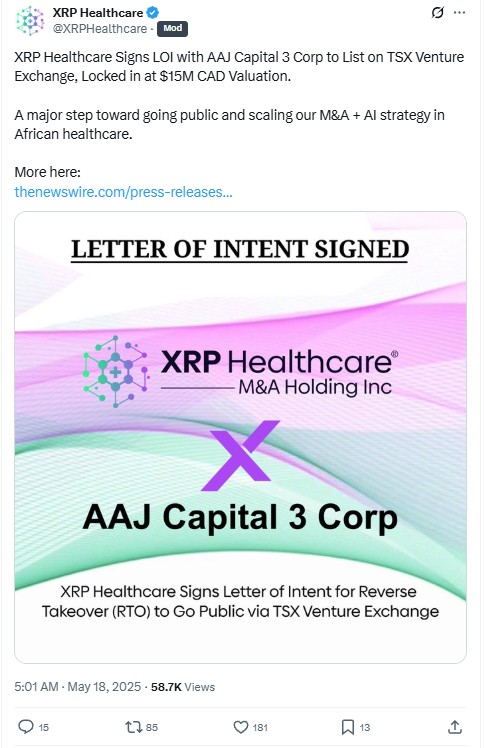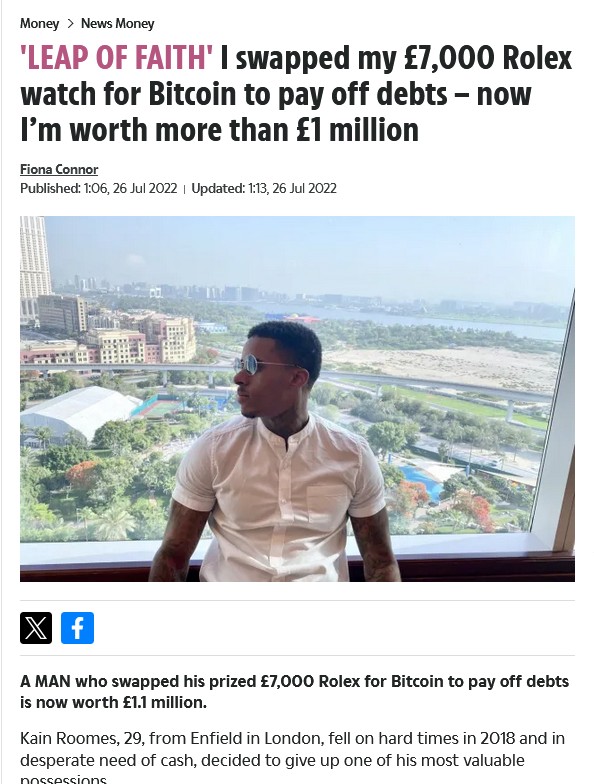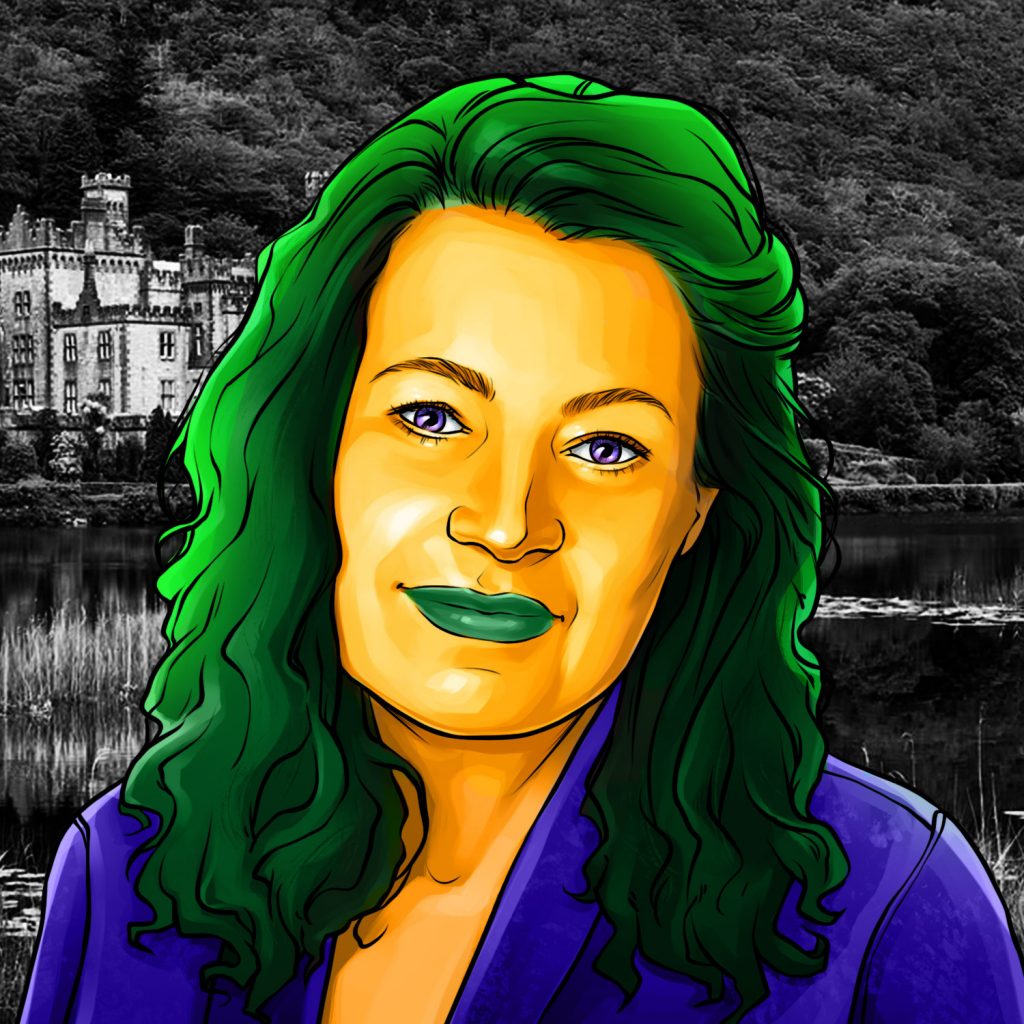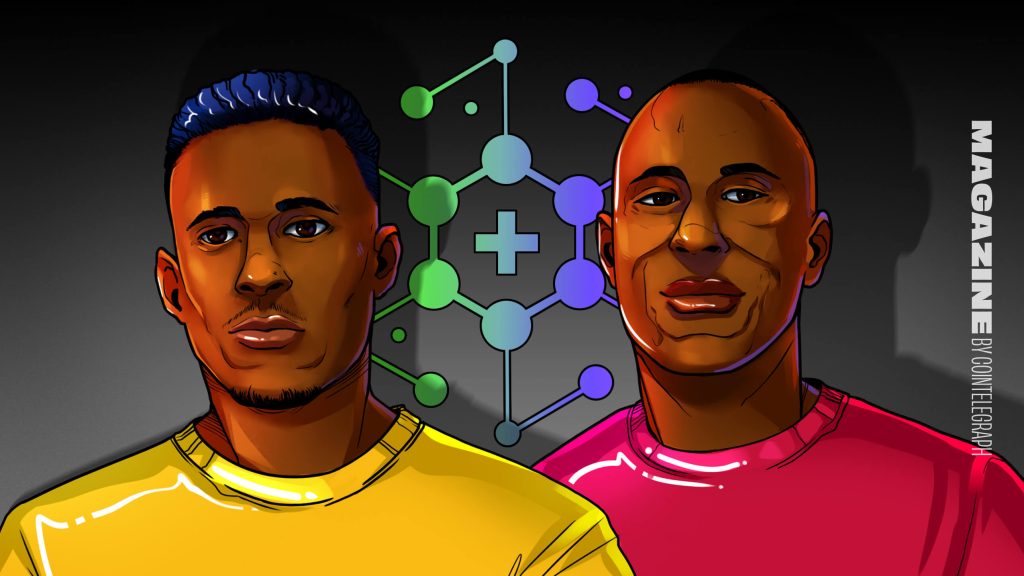|
|
It’s been a long road for entrepreneur Laban Roomes and his footballer-turned-crypto founder son Kain, but their XRP Healthcare startup is in the process of going public on the Canadian stock exchange.
They co-founded the Dubai-incorporated company with the goal of modernizing healthcare in Africa by combining crypto infrastructure, artificial intelligence, and real-world services. It operates a digital healthcare platform as well as a chain of pharmacies in Uganda using the XRP Ledger to track pharmaceutical supplies and patient outcomes.
“In the West, we take reliable pharmacies and access to medication for granted,” says Laban. “In parts of Uganda, that just isn’t the case. This is about changing that and starting on the ground, not in the metaverse.”

“The country’s private healthcare market is highly fragmented. Our strategy involves buying and modernizing pharmacies, drastically reducing medication prices to enhance accessibility,” says Kain.
The acquisitions, now seven and counting, are part of a longer-term dream to consolidate the private healthcare market in Uganda under one interoperable system. But they’re pacing themselves.
“There’s a temptation in crypto to scale fast and break things,” says Laban. “We’re scaling slowly and building trust instead.”
On May 14, XRP signed a letter of intent with AAJ Capital 3 Corp for a reverse takeover to list on Canada’s TSX Venture Exchange. The founders frame going public as strategic, not speculative.
“We want transparency, regulation, and the capital to grow responsibly,” says Kain. “But this isn’t about a windfall. It’s about making sure the model works in Uganda, and eventually across Africa.”
The deal values the company at $16 million Canadian dollars ($11.5 million), so it’s hardly a Coinbase-listing style event. But it’s a big step along the road for the father-son team’s small XRP Ledger-based startup.
Football and modelling to XRP
It’s been a curious journey into crypto for Londoner Kain, who previously had a relatively successful career in football and modelling. He rose through youth teams at QPR, Tottenham, and Arsenal before playing professionally in Malta.
He modeled for Nike, Adidas, and Puma and signed to top London agency PRM, while also working for Sports Direct. But over time, the heat went out of his career, and with it, his finances, and he wound up in debt. That’s when he found Bitcoin. He wanted to believe in something new, something bold.

In 2018, he sold a prized Rolex watch for 7,000 British pounds worth of Bitcoin, an investment that grew to be worth 100,000 pounds. He reinvested the proceeds in ICOs, which pumped his bank balance to over a million and landed him in the tabloids.
After Kain’s first crypto investment paid off, both he and his father Laban immersed themselves in the space, following projects like Zilliqa and Ripple, attending meetups, and absorbing every detail.
Laban, 55, is a UK-born entrepreneur with a knack for reinvention, having spent years building businesses from scratch. Laban’s first significant enterprise was shipping Lada Riva cars to Jamaica, and then in 1995, he established the luxury gifts and gold plating company Goldgenie, where he developed a unique digital gold-plating device despite having no formal engineering training.
He appeared on BBC’s Dragons’ Den (later remade as Shark Tank in the US) where he secured the first televised investment from the celebrated investor James Caan, turning Goldgenie into a luxury brand in the late 2000s. After three years, Laban successfully bought Caan out, moving the company toward global celebrity clientele, including events like Elton John’s White Tie and Tiara Ball and Hollywood’s Emmy Awards, significantly elevating his business profile.
Teaming up with Laban to launch XRP Healthcare
The genesis of XRP Healthcare was prompted by Kain’s desire to build something worthwhile using crypto. Supported by his father, Kain explored ways to launch his own project.
“Initially, the idea of running a crypto project seemed daunting. We’d seen how other founders were treated, the criticism, the trolls, the pressure from the community in such a volatile environment, but after detailed discussions with my father, it felt like the right path. Healthcare became our chosen field, it’s large, critical, and a sector where you can genuinely impact lives,” says Kain.
The project became XRP Healthcare. It uses the XRP Ledger to facilitate cross-border payments, reduce administrative overhead and track medical inventory.
XRP Healthcare has two distinct yet interconnected business operations: a crypto-enabled digital healthcare platform and a physical mergers and acquisitions (M&A) strategy aimed at consolidating pharmacies in Africa, beginning in Uganda.

The XRP Healthcare custodial wallet enables users to hold, transfer and use cryptocurrencies like XRPH (the company’s native token), XRP, and Ripple’s stablecoin, RLUSD. It also holds a prescription savings card valid across 68,000 pharmacies in the United States for US citizens, offering discounts on medicines and incentives in XRPH tokens.
Kain says they plan to integrate the wallet into their recently developed AI-powered healthcare app, XRPH AI.
“We realised the AI app could be monetized by giving users instant free health advice and pharmacy discounts. It made sense to separate crypto functions clearly from healthcare-focused AI features to optimize both products.”
Launch of XRP Healthcare token goes off the rails
The launch of the XRP Healthcare token went awry when third-party individuals prematurely listed the token on a decentralized exchange, which saw it briefly shoot to a valuation of $194 million. However, XRP Healthcare ran their official token sale at ten cents per token and raised approximately $380,000 to fund their early operations. Since it’s been trading for real, the market cap peaked above $20 million at the start of the year and has eased back to just above $7 million.

The money raised went to invest in real-world assets in Uganda, which is a country with a young population, rapidly expanding digital infrastructure and an urgent need for improved healthcare logistics. Through a holding company, XRP Healthcare, they began acquiring licensed local pharmacies and integrating them into a unified, blockchain-supported platform.
Plans are underway to scale significantly post-IPO, expanding into neighboring countries such as Rwanda and Kenya, reinforcing the company’s regional presence and mission of affordable healthcare.
Kain recently returned from the country, where he met with local pharmacy owners, health officials and potential partners. “It’s not enough to build from a laptop in London,” he says. “You need to show up. You need to listen.”
Starting small but building something real
While much of the Web3 world continues to chase trends, from memecoins to the metaverse,crypto is actually starting to make a small but noticeable impact in the real world.
There’s precedent for blockchain infrastructure in African markets, from Kenya’s mobile money systems to Nigeria’s CBDC pilots. But the Roomes aren’t looking to sell grandiose visions of blockchain cities, or hyper Bitcoinization. It’s more practical than that.
“We’re not here to pitch dreams,” Laban says. “We’re here to deliver pills on shelves, at the right time, to the right people.”
Laban brings decades of experience, and Kain brings the perspective of a new generation raised on crypto and tech.
“We challenge each other,” Kain says. “But that’s the point. There’s no ego. There’s just a mission.”


Jillian Godsil
Arthur Hayes $1M Bitcoin tip, altcoins ‘powerful rally’ looms: Hodler’s Digest, May 11 – 17
